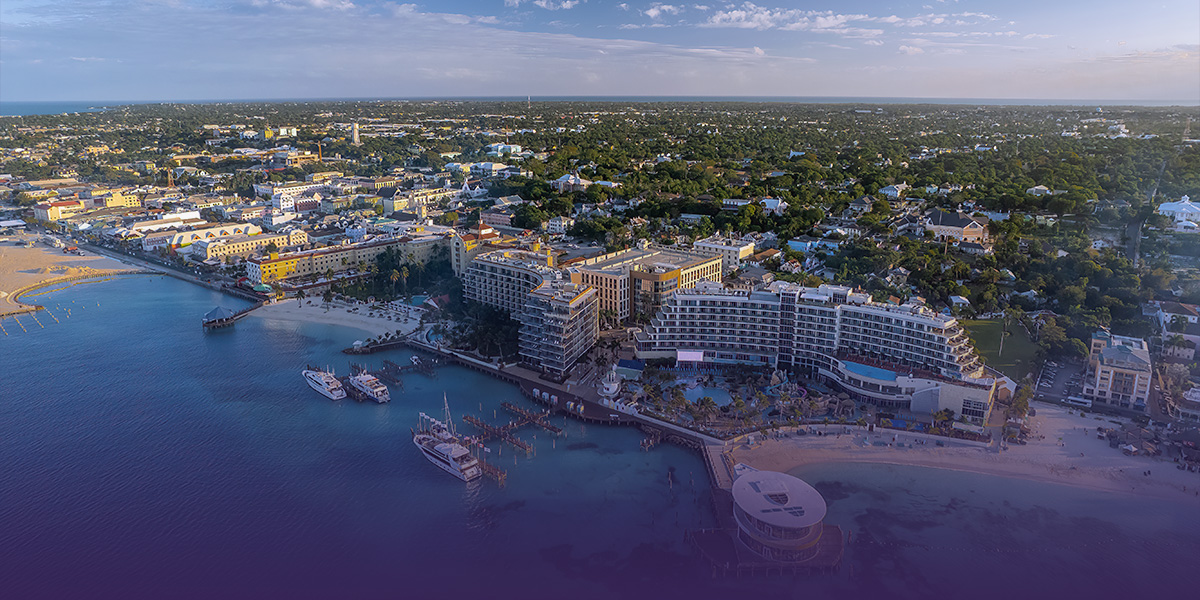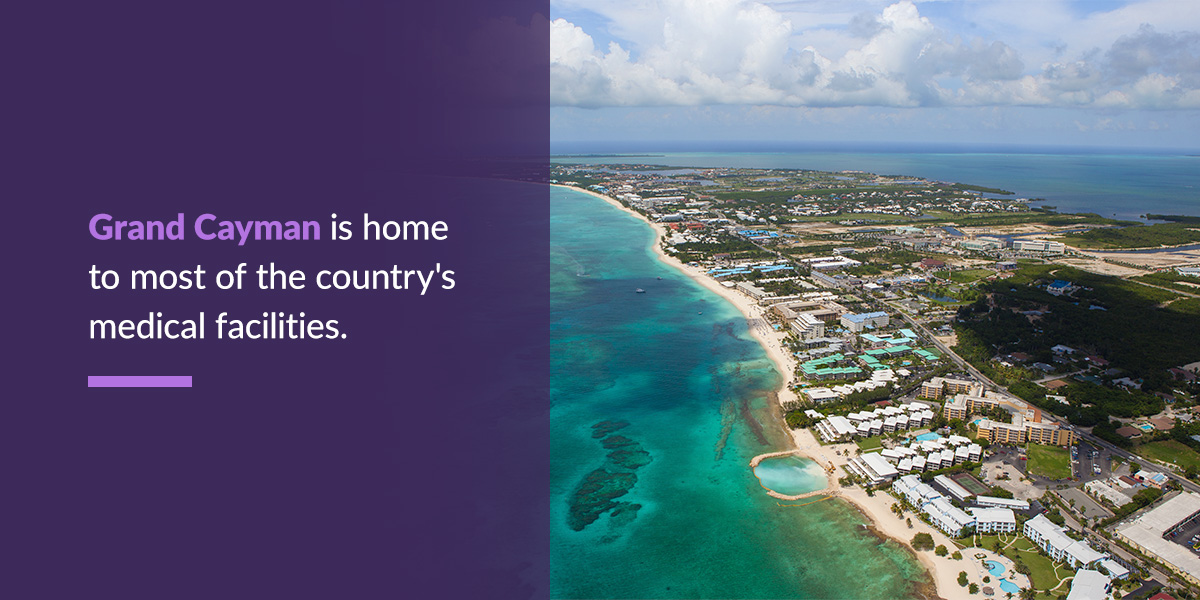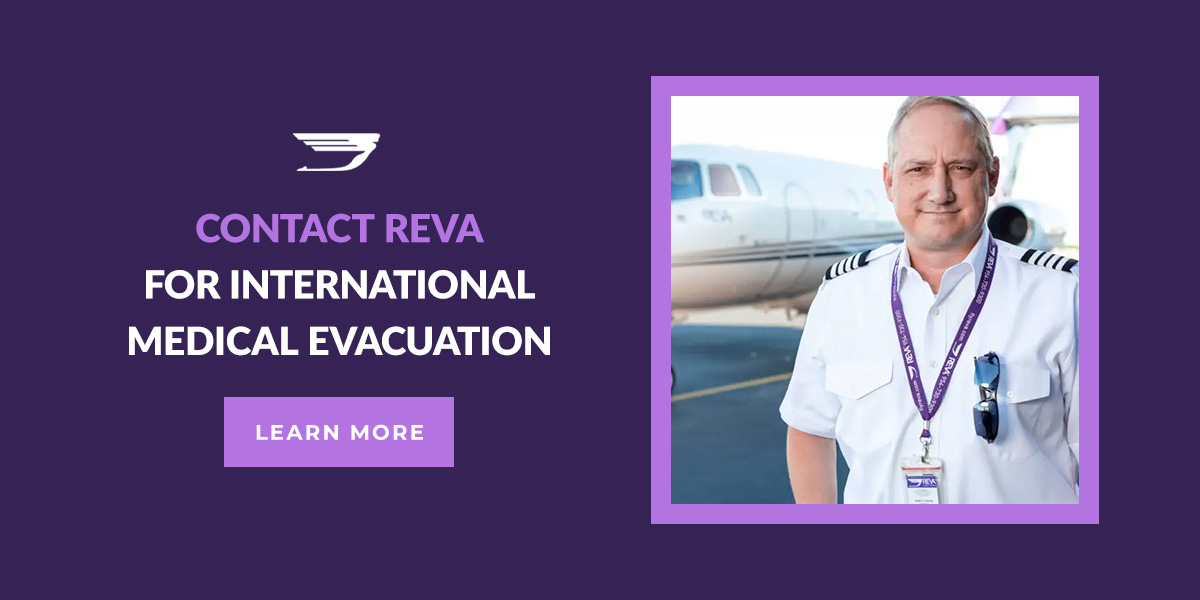English-Speaking Hospitals in the Caribbean Islands
The Caribbean is home to white sands, crystal-clear waters and lush vegetation — the perfect environment for a calm, relaxing vacation. But what do you do when a sudden injury or illness breaks that tranquility?
Fortunately, native English speakers have many options. English is the predominant language in most of the region and is the official language in 11 out of the 13 countries, so there are many places you can go to seek treatment.
High-Quality Health Care Facilities in the Caribbean
If you get sick or injured while you’re abroad, it can be difficult to find the care you need — especially if you’re in a remote part of the tropics. Knowing where you can seek assistance will save you invaluable time in emergencies.
We’ve provided a short list for each of the Caribbean islands, so you can add them to your contacts before you go.
The Bahamas
The Bahamas consists of approximately 700 islands, 30 of which are inhabited. Medical care is limited in most of the islands, making Nassau and Freeport the best places to go if you need emergency care.
Princess Margaret Hospital in Nassau is a publicly operated hospital that serves as the country’s primary acute care and trauma facility. With 402 beds, a nine-bed intensive care unit and a staff of almost 2,000 health care providers, this hospital should be a traveler’s first choice for efficient emergency treatment.
Doctors Hospital is another Nassau hospital with a full 24/7 onsite emergency department and intensive care unit. One of the most modern facilities on the island, this hospital has 72 beds and a 24-hour pharmacy for efficient treatment. Note that if you receive inpatient care, you will receive separate bills from the hospital and the individual providers you saw during your visit.
It’s also important to note that providers in the Bahamas often expect immediate payment in cash regardless of your coverage — if you’re without travel insurance, you might be looking at a hefty out-of-pocket payment.
Barbados
Queen Elizabeth Hospital in the island’s capital city of Bridgetown is the country’s primary facility for acute medical care. It also serves as an accredited teaching hospital for medical students attending the University of the West Indies.
The hospital has a fully staffed Accident and Emergency Department in addition to an extensive list of general and specialized medical services.
Cayman Islands
There are three islands that make up the Cayman Islands — Grand Cayman, Little Cayman and Cayman Brac. Grand Cayman is home to most of the country’s medical facilities, though some also operate small clinics on the other islands.
Health City in East End, Grand Cayman, is a recipient of the Joint Commission International Seal of Approval, which is awarded to hospitals that meet or exceed the highest standards of care. The hospital also operates two satellite clinics — one on Cayman Brac and another in Camana Bay.
Cayman Islands Hospital in George Town, Grand Cayman, offers 24-hour emergency medicine, critical care and urgent care services for patients needing acute treatment. The Cayman Islands Health Services Authority owns and operates this hospital, as well as the Faith Hospital on Cayman Brac and a small clinic on Little Cayman.
St. Lucia Island
Although St. Lucia is a small island nation, travelers have several health care options to choose from:
- Victoria Hospital: Located in Castries, Victoria Hospital is the island’s primary medical facility. It operates a six-bed 24/7 emergency department with an attached resuscitation room and a highly skilled team of providers.
- Tapion Hospital: This 30-bed private facility in Castries offers full emergency services provided by a team of trained physicians and registered nurses. The hospital accepts international insurance as long as you provide an authorization letter — however, it’s best to check with your provider first to confirm coverage.
- St. Jude Hospital: Located on the island’s southern tip, St. Jude is a small public hospital that underwent extensive renovations in 2015 to expand its capacity for patient care.
Turks and Caicos
While the nation of Turks and Caicos includes 40 islands, only eight are inhabited. The best hospitals in the area are on the most populated islands.
Cheshire Hall Medical Centre on Grand Turk and Cockburn Town Medical Centre on Providenciales belong to the public-private partnership between InterHealth Canada TCI Ltd and the Turks and Caicos government.
The organization staffs a diverse team of highly skilled providers dedicated to delivering high-quality care with compassion and urgency. Both locations offer accident and emergency treatment as well as an onsite laboratory and pharmacy for efficient diagnosis and treatment.
Preparing for a Trip to the Caribbean
Accidents and emergencies can happen to anyone, anywhere, so it’s always best to be prepared when you’re traveling abroad. That’s especially true if you or one of your traveling companions has a chronic condition that could be triggered during your trip. Some examples include:
- Circulatory problems
- Heart disease
- Asthma
- Diabetes
Additionally, you’ll want to ensure everyone in your group has enough medication to last the duration of the trip. While most hospitals have an onsite pharmacy, you may not be able to get the specific medications you need outside of the United States. Talk to your primary care provider and insurance company if you need more than your typical prescription.
Accessing Care
Make sure you know where your nearest hospital is. It’s also a good idea to write down contact information for the closest U.S. Embassy or Consulate in case you forget — they can provide you with a list of all local medical facilities and even help you find medical assistance if your condition is serious.
Paying for Medical Care
Insurance is another major concern to address. Whatever island you visit, you’ll want to confirm that your insurance provider will cover any medical care you may need while out of the country.
That said, most insurance companies don’t cover emergency medical transportation, including ambulances, airlifts and medical boats. It’s a smart idea to purchase good travel insurance with medical evacuation benefits so you can keep your costs low if something does happen.
This is another good reason to have information for your nearest Embassy or Consulate. While they won’t pay for your treatment, they can help you transfer funds from the U.S. to the medical facility in the Caribbean, which can save you a lot of time and frustration.
Contact REVA for International Medical Evacuation
If you need specialized or emergency treatment while in the Caribbean, REVA can help. We’ll fly you to either the nearest hospital or one in your home country so you can receive the care you need.
Learn more about our medical evacuation, medical repatriation and international air ambulance services today.



